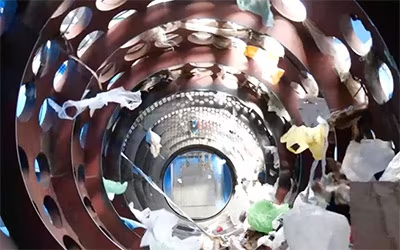Recycling Plastics, Reusing Water

Recycling plastics can save landfill space and conserve energy and water that would have been used to make new materials, among other benefits. But mechanical recycling also comes with its challenges.
To ensure high-quality post-consumer recycled (PCR) plastic resins, recycled plastics must be cleaned. The optimization of this process can be challenging, especially removing contaminants and properly separating materials, as well as controlling foam during the required washing steps.
That is why Dow has developed an innovative washing technology called EVOWASH™. It supports high-quality mechanical recycling for the production of PCR resins that meet customers’ expectations, while also maximizing the reuse of process water.
“As a materials science company, an important part of our sustainability strategy is to design products and technologies that enable our customers and consumers to save water and other resources,” said Juan Pablo Watty, Dow global segment leader, Mechanical Recycling. “By improving the mechanical recycling process, this technology helps support a circular economy and advance recycling rates.”
Maximizing water circularity
Washing is a crucial step in the plastic recycling process since it removes some of the impurities that can degrade a batch of recycled plastic. The impurities targeted in this step commonly include things such as product labels and adhesives, as well as dirt and food residue.
EVOWASH™ is a range of biodegradable, industrial-grade detergents and antifoams designed to maximize adhesive removal, improve the optical quality of plastic resins, and reduce foam generation in the mechanical recycling of PET, HDPE, LDPE and PP. Because EVOWASH™ detergents are biodegradable and generate low foam, they have no impact to discharge water. In fact, our products have performed successfully in recycling systems with discharge cycles above seven days without impacting compliance with local regulations for process effluents.

